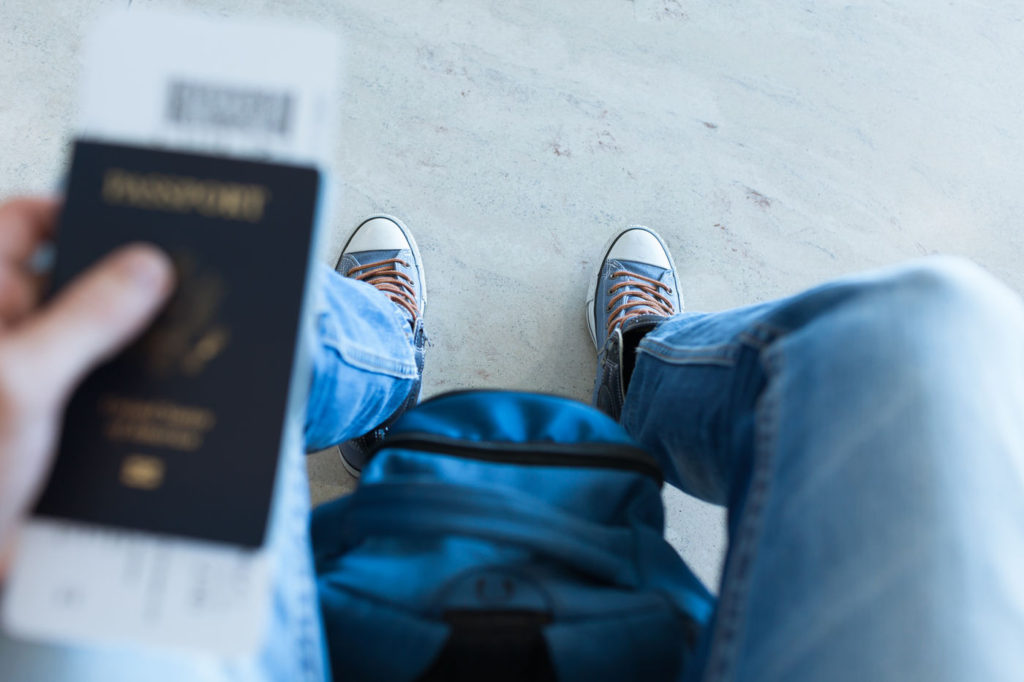Student visa
Foreign nationals wishing to study in a higher education establishment (or complete a preparatory year prior to attending a higher education establishment) and who meet the conditions set out below can obtain a temporary residence permit.
Save money by downloading our DO IT YOURSELF guide
The Halabi & Associates law firm has put together a range of special tools to help you limit your legal fees while benefiting from professional legal support.

Obtaining a student visa is not very complicated but does require special knowledge of the application procedures. The official information is often sparse and unclear and that is why our Firm decided to create a range of reliable guides that present and explain procedures in a clear, accurate and comprehensive manner with illustrative examples and templates.
You will also find information about the procedures to follow to apply for a scholarship/grant, as well as expert legal advice.
Granting conditions
Proof of enrolment or pre-enrolment issued
by an educational institution that is organised, recognised or subsidised by
the State. In most cases, the student will be asked to produce the equivalent
of his/her foreign educational qualifications.
For more information, click here
Le montant minimal dont l’étudiant doit pouvoir disposer mensuellement est adapté et fixé annuellement par l’Office des Étrangers.
Proof of sufficient financial resources to cover the cost of the stay, healthcare, education and repatriation.
The minimum monthly amount required by the student is fixed and updated annually by the Office des Étrangers.
These means must be at least equal to 120% of the amount of the social integration income granted to a person living with a dependent family, i.e., 2.131,28 euros (€) net/month (amount indexed on 01/01/2025). To this amount must be added the minimum amount that each supported national must have, i.e. 803 euros net/month (amount fixed for the academic year 2024/2025).
Example: a guarantor who takes in 1 third-country national will have to prove that he/she has at least 2.131,28 euros net/month + 803 net/month) = 2934,28 euros net/month.
The means of subsistence (i.e. financial resources) can be proved by:
- proof of a scholarship/grant or student loan;
- an undertaking to assume financial responsibility by a Belgian, foreign natural or legal person (appendix 32);
- a blocking certificate issued by the University or School for an amount of 803 euros x 12, i.e. 9636 euros
- proof of a gainful activity (only from the 2nd year of studies).
A medical certificate stating the absence of certain diseases as set out in law.
A certificate of good conduct, if the person is over 21 years, and the absence of a criminal record.
A student enrolled in an educational institution in Belgium for full-time education has the right to work under certain conditions (obtaining a work permit C and up to 20h/week).
We can help you compile and submit your application in order to optimise your chances of success.
Useful links:
For information about studying in Belgium, as well as entry conditions to the country, scholarships and accommodation options, you can consult these websites:
- the Wallonia-Brussels Agency Campus website;
- Foreign Affairs, Foreign Trade and Development Cooperation website;
- the Wallonia-Brussels International website especially the page on student grants/scholarships.
Important: to study in Belgium, you must obtain a certificate of equivalence stating the qualifications you already hold. The certificate of equivalence is a document that shows the level of the studies you completed abroad.
- Procedure of equivalence secondary education diplomas and certificates
- Procedure of equivalence for higher education diplomas and certificates
Young foreign researchers wishing to complete their PhD in the Wallonia-Brussels Federation can consult:
Important: to start your doctoral studies in the Wallonia-Brussels Federation, you will not have to provide academic recognition of your foreign degree, as only universities can decide whether to accept you or not. However, you must always have the prior consent of a potential PhD supervisor. We recommend that you contact universities directly to learn about their areas of research.
Higher education in the Wallonia-Brussels Federation
You can also use GO4SUP, a simple, quick and easy tool that presents a wide range of courses offered by hautes écoles, universities and art schools. You can also search by location/province (Wallonia Region and the Brussels-Capital Region).
You can find a list of all higher education establishments and the courses they offer in our directory.
Emmanuelle Halabi, a lawyer specialising in protecting foreigners’ rights and who has a Master’s degree in international law, will make every effort to help you prepare your application and complete all the formalities. Do not hesitate to contact our offices.